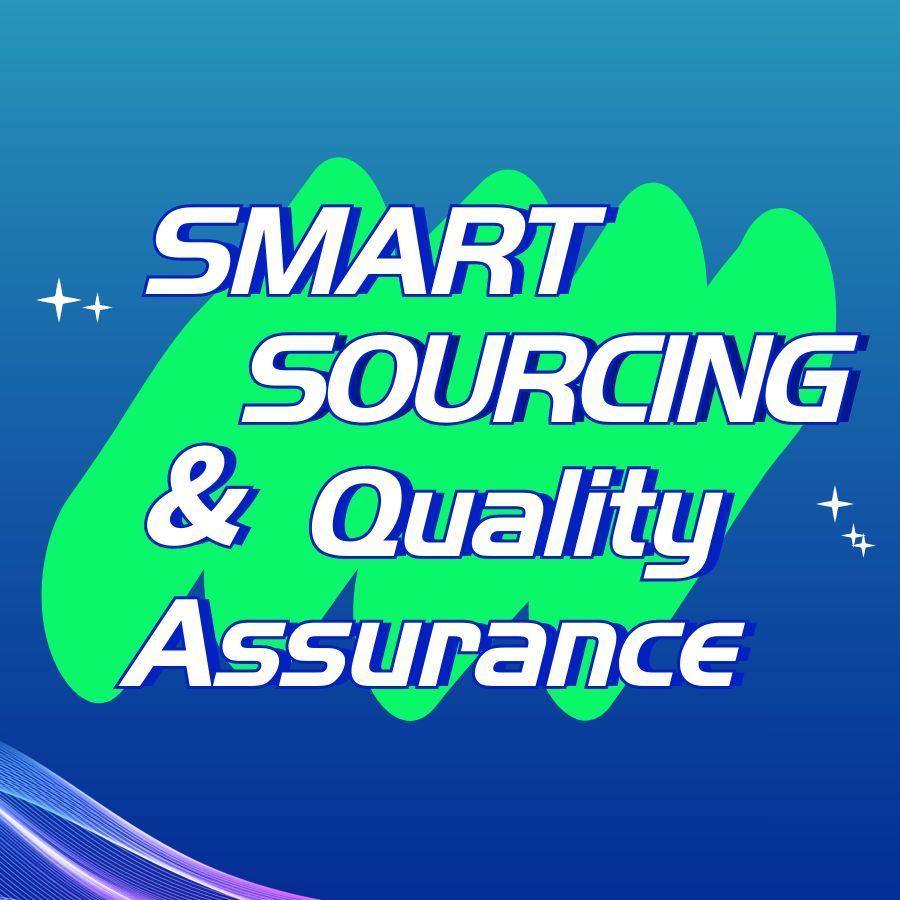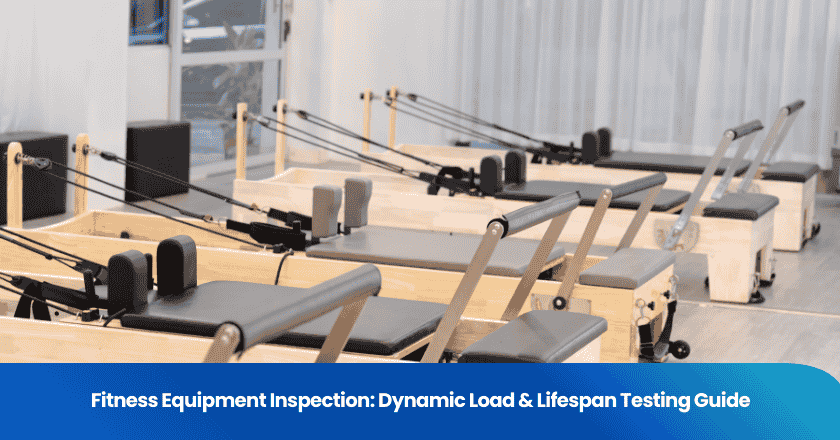
What are the job responsibilities of a sourcing manager?
As the core role in the enterprise supply chain management, the sourcing manager's work involves supply chain management, cost control, supplier relationship maintenance, and other aspects.
Their main responsibility is to identify, evaluate, and select suppliers that can provide the goods or services required by the company.
The following is a description of the work content of the sourcing manager:
Supplier management: Responsible for finding, evaluating, and introducing new suppliers to expand the supplier resource pool. Maintain close communication with existing suppliers to ensure stable supply and good cooperative relationships. Regularly evaluate supplier performance, eliminate unqualified suppliers, and optimize the supplier structure.
Sourcing Plan and Implementation: Based on demand, formulate a detailed sourcing plan, including the types, quantities, and budget of the items to be purchased. Organize the implementation of the sourcing plan, including inquiry, price comparison, negotiation, contract signing, order tracking, etc.
Cost control: Analyze the composition of procurement costs, look for opportunities to reduce procurement costs. Develop and implement cost control strategies, such as centralized procurement, long-term contracts, etc.
Market research and analysis: Pay attention to market dynamics, understand industry development trends and competitors' situations. Analyze the sourcing products, assess their market demand and potential risks.
Cross-departmental collaboration: Work closely with the production department to ensure that purchased items are supplied on time, with quality and quantity guaranteed. Collaborate with the finance department to manage procurement budgets and payment processes. Communicate with the sales department to understand market demand and provide basis for procurement decisions.
System and process management: Establish and improve the sourcing management system and processes to ensure the standardization and normalization of sourcing work. Monitor the implementation of sourcing systems and processes to ensure compliance and efficiency in sourcing work.
The job content of the sourcing manager covers supplier management, procurement planning and implementation, cost control, market research and analysis, cross-departmental collaboration, as well as system and process management, among other aspects.
Key skills of the sourcing manager
A successful sourcing manager needs to possess a range of key skills and qualifications.
These skills play an important role in supply chain management, cost control, supplier relationship maintenance, and cross-departmental collaboration for sourcing managers.
The following are the key skills mastered by successful sourcing managers:
Market analysis capability: The sourcing manager needs to pay close attention to market dynamics, understand industry development trends, competitor situations, and product supply and demand conditions, in order to formulate more precise procurement strategies.
Negotiation and communication skills: Negotiations with suppliers are an important part of the sourcing work. A successful sourcing manager needs to possess excellent negotiation skills to be able to obtain the most favorable conditions in terms of price, delivery time, quality, etc. Effective communication with various departments within the company is required to ensure that the sourcing plan is coordinated with the overall operations of the company.
Supply chain management capabilities: The sourcing manager needs to possess comprehensive supply chain management capabilities, including supplier selection, procurement planning, inventory management, logistics coordination, etc., to ensure timely arrival of materials, reduce inventory costs, and improve supply chain efficiency.
Risk management capability: There are various risks in the procurement process, such as price fluctuations, supply disruptions, etc. A successful sourcing manager needs to be able to identify and assess these risks, and develop corresponding strategies to reduce risks and losses in the procurement process.
Cost control ability: The sourcing manager needs to reduce procurement costs and increase the profit margin of the company by optimizing the procurement process, negotiation strategies, and other means.
Information technology capabilities: Modern sourcing activities increasingly rely on information technology tools, such as ERP systems, data analysis tools, etc. A successful sourcing manager needs to be proficient in using these tools to improve work efficiency and accuracy.
Leadership and team management skills: The sourcing manager needs to lead the procurement team, cultivate team members, and motivate them to achieve team goals. They also need to have effective team management skills to ensure that team members can work together and complete tasks efficiently.
Decision-making ability: In the face of complex market environments and multiple choices, the sourcing manager needs to make quick and informed decisions to support the company's overall operations and development strategy.
Business Insight: A successful sourcing manager needs to possess in-depth business insight, be able to understand the company's business model and strategic goals, and enable procurement activities to closely support the company's overall development strategy.
Compliance and Ethical Standards: The sourcing manager needs to comply with relevant laws, regulations, and professional ethical standards to ensure the compliance and fairness of procurement activities.

How does a sourcing manager formulate effective sourcing strategies
Formulating effective sourcing strategies is the responsibility of the sourcing manager.
Formulating an effective sourcing strategy is a complex process, involving multiple considerations and decisions.
Here are some key steps and points:
1. Clarify the sourcing objectives
Firstly, the sourcing manager needs to have a deep understanding of the company's business needs and strategic goals, and clarify the supportive role of procurement activities in the overall operation of the company. Based on business needs, specify the specific goals of procurement, such as reducing costs, improving quality, ensuring supply stability, etc.
2. Analyze the market and suppliers
Pay attention to market dynamics, understand industry development trends, competitor situations, product supply and demand conditions, as well as information on potential suppliers. Conduct a comprehensive evaluation of potential suppliers, including supplier reputation, qualifications, production capacity, delivery capabilities, after-sales service, etc. By establishing a supplier evaluation system, conduct regular evaluations and screenings of suppliers to ensure the selection of suitable suppliers.
3. Develop sourcing strategy
Procurement method
Based on the product characteristics, determine whether to use direct sourcing or indirect sourcing. Direct sourcing usually involves raw materials and other products that are directly used for production, while indirect sourcing involves office supplies, services, and other products that are not directly used for production. Choose the appropriate sourcing method according to the company's size and needs.
Diversified sourcing can reduce risks and potentially obtain better price discounts, but the management cost is higher; single sourcing has lower management costs, but higher risks. Choose international sourcing or local sourcing based on product characteristics and cost-benefit analysis.
International sourcing may result in higher quality or cheaper products, but it involves more complex logistics and tariff issues.
Cost control strategy
Analyze the composition of procurement costs and identify opportunities for cost reduction. Implement strategies such as centralized procurement, long-term contracts, and negotiation pricing to reduce procurement costs. Use data analysis tools to predict price fluctuation trends and develop flexible procurement plans to respond to market changes.
Risk management strategy
Assess potential risks in the supply chain, including supplier risks, logistics risks, market demand fluctuation risks, etc. Develop risk response measures, such as establishing a standby supplier base, formulating emergency procurement plans, etc.
Quality Assurance Strategy
Ensure that the purchased products or services meet the company's quality standards and customer needs. Establish quality assurance mechanisms with suppliers, such as regular inspections, quality feedback, etc.
4. Implementation and Monitoring
According to the sourcing strategy, formulate a detailed sourcing plan, including the types, quantities, budgets, timetables, etc. of the items to be purchased. Organize and implement sourcing activities according to the sourcing plan, including inquiry, price comparison, negotiation, contract signing, order tracking, etc. Monitor the sourcing process in real time to ensure that sourcing activities proceed smoothly according to the plan. Timely identify and solve problems to ensure the achievement of sourcing goals.
5. Continuous optimization
Regularly evaluate the implementation effect of sourcing strategies, including cost savings, supplier performance, and efficiency of the sourcing process. Adjust and optimize sourcing strategies based on performance evaluation results. Continuously introduce new management concepts and technical means to improve sourcing efficiency and effectiveness.
The main challenges faced by the sourcing manager
Sourcing managers face multiple challenges in today's market, mainly due to the complexity of the supply chain, the rapid development of information technology, the uncertainty of the market, and the needs of internal management.
1. The complexity of supply chain management
With the development of globalization, the supply chain of enterprises spans multiple regions and countries, facing unforeseeable risks such as natural disasters and political instability. These risks may lead to supply chain disruptions, affecting the normal operation of the enterprise. Choosing the right suppliers and maintaining stable cooperative relationships is an important task for the sourcing manager. The quality, delivery time, price, and other factors of suppliers may affect the procurement results, requiring the sourcing manager to have keen insight and effective management methods. In the context of globalization, factors such as raw material price fluctuations and exchange rate changes increase the difficulty of supply chain cost control. The sourcing manager needs to pay close attention to market dynamics and adopt effective strategies to reduce costs.
2. Challenges of information technology
With the rapid development of information technology, digital sourcing has become a trend. Sourcing managers need to master the latest sourcing software, systems, and technologies to improve sourcing efficiency and reduce error rates. The application of information technology also brings information security risks. Sourcing managers need to ensure the security and privacy protection of sourcing data, preventing cyber attacks and data leaks.
3. The uncertainty of market changes
The diversification and rapid changes in market demand require the sourcing manager to have agile supply chain management capabilities, quickly respond to market changes and adjust procurement strategies. With increasingly fierce competition in the market, the sourcing manager needs to focus on the selection and negotiation of suppliers to obtain more competitive prices and better services.
4. Internal management needs
The sourcing manager needs to control procurement costs while meeting the needs of the company, formulate reasonable budgets and implement them effectively. Improving the efficiency and management level of the procurement team is also an important task of the sourcing manager. The sourcing manager needs to establish a comprehensive procurement system and process, and formulate a reasonable performance evaluation system to stimulate the enthusiasm and creativity of team members.
5. Challenges of quality management
The quality of the product is directly related to the reputation and sales performance of the company. The sourcing manager needs to pay attention to the quality management capabilities of the suppliers, establish a comprehensive supplier evaluation system, and ensure that the products produced by the suppliers meet the requirements of the company. In the procurement process, there is often a contradiction between quality and cost. The sourcing manager needs to minimize procurement costs as much as possible while meeting quality requirements, and avoid additional costs due to quality issues.
How does a sourcing manager establish strong supplier relationships?
Establishing strong supplier relationships is an important task for the sourcing manager. How the sourcing manager builds strong supplier relationships is a complex matter. Here are some key details.
1. Understand the market and suppliers
The sourcing manager should have a deep understanding of market conditions, including industry trends, competitive landscape, supplier distribution, etc., in order to provide decision-making basis for selecting the right suppliers. Conduct a comprehensive evaluation of potential suppliers, including their strength, credibility, delivery capabilities, quality assurance capabilities, etc. This helps to screen out high-quality suppliers that meet the needs of the enterprise.
2. Establish a supplier database
Establish supplier profiles and databases, including contact information, product quality, process technology, contract fulfillment capabilities, and other information. This helps companies keep abreast of supplier dynamics and facilitates subsequent cooperation. Use supply chain management software and other tools to achieve electronic management and real-time updates of supplier information, improving management efficiency.
3. Establish cooperation goals and communication mechanisms
Establish clear collaboration goals with suppliers, including requirements for quality, price, delivery time, etc., to ensure both parties have a clear understanding and a common direction for the partnership. Establish regular communication mechanisms, such as weekly or monthly meetings, to timely share changes in demand, market information, and product quality requirements, ensuring smooth information flow between both parties. Additionally, utilize collaboration platforms and other tools to achieve real-time updates and document sharing, improving communication efficiency.
4. Establish a supplier evaluation system
According to the needs of the enterprise, formulate detailed supplier evaluation criteria, including quality, price, delivery time, service, etc. These standards should be specific and quantifiable for practical operation. Regularly evaluate suppliers and take timely measures to solve problems found. The evaluation results should be presented in score form for comparison and analysis. Through the evaluation mechanism, encourage suppliers to continuously improve their service levels to ensure the purchasing quality of the enterprise.
5. Strengthen quality control and supply management
Conduct random inspections on products provided by suppliers to ensure that the product quality meets the requirements. At the same time, work with suppliers to develop quality control measures, such as raw material inspection, production process control, etc., to ensure product quality from the source. Monitor the supply situation of suppliers to ensure timely and quantitative delivery. For issues such as supply delays, communicate with suppliers in a timely manner and seek solutions to avoid affecting the normal operation of the enterprise.
6. Seek a win-win cooperation model
Establish long-term stable cooperative relationships with high-quality suppliers, jointly develop strategic cooperation plans, and seek to maximize the interests of both parties. Through deep cooperation, achieve resource sharing and complementary advantages, and jointly face market challenges. Care for and support the development of suppliers, provide necessary training resources, market information, and technical support, etc., to help suppliers improve management level and technical strength. Growing together is conducive to establishing a closer cooperative relationship.
7. Introduce sourcing management software
Using professional sourcing management software, the procurement process is made transparent, standardized, and automated. Through the software platform, effective allocation and management of supplier resources are achieved, improving the flexibility and reaction speed of the supply chain, and further strengthening cooperation with suppliers.
The career development path of the sourcing manager
The career development path of a sourcing manager is usually a process of gradual promotion and continuous deepening. The following is a detailed explanation of the career development path of a sourcing manager from multiple aspects:
1. Initial stage
The career of a sourcing manager often begins with a position as a buyer or purchasing assistant at the grassroots level. At this stage, individuals need to be familiar with the procurement process, understand market demand, establish connections with suppliers, and accumulate preliminary purchasing experience. Good communication skills, basic purchasing techniques, knowledge of products, and sensitivity to market dynamics are key abilities required at this stage.
2. Intermediate stage
As experience accumulates and skills improve, a buyer or purchasing assistant has the opportunity to be promoted to sourcing manager. The sourcing manager is responsible for the operation of the entire purchasing department, formulating purchasing strategies, managing supplier relationships, and ensuring the smooth progress of purchasing activities.
Sourcing managers need to possess a global perspective, excellent negotiation skills, keen market analysis abilities, good professional ethics, and a spirit of teamwork. At the same time, they also need to be familiar with procurement processes, master procurement techniques, and be able to use information technology to enhance procurement efficiency.
The career path of a sourcing manager can be gradually expanded from different industries and different sizes of enterprises. For example, it can be expanded from manufacturing to services, and promoted from small enterprises to large enterprises or multinational corporations.
3. Advanced stage
After becoming a sourcing manager, one can gradually advance to senior sourcing manager or procurement director through continuous learning and practice. The position is usually responsible for a wider range of procurement activities, including strategic planning, supply chain integration, risk management, etc.
Senior sourcing managers or sourcing directors need to possess a higher strategic vision, stronger decision-making abilities, richer industry experience, and a broader interpersonal network. They need to continuously pay attention to industry trends and market dynamics to formulate sourcing strategies that meet the needs of the company.
For individuals who want to make a difference in the field of sourcing, it is recommended to start from the grassroots level, continuously accumulate experience and improve skills; at the same time, maintain keen market insight, pay attention to industry trends and technological development; finally, continuously improve their professional quality and competitiveness through continuous learning and practice.
Grow your business with TradeAider Service
Click the button below to directly enter the TradeAider Service System. The simple steps from booking and payment to receiving reports are easy to operate.




